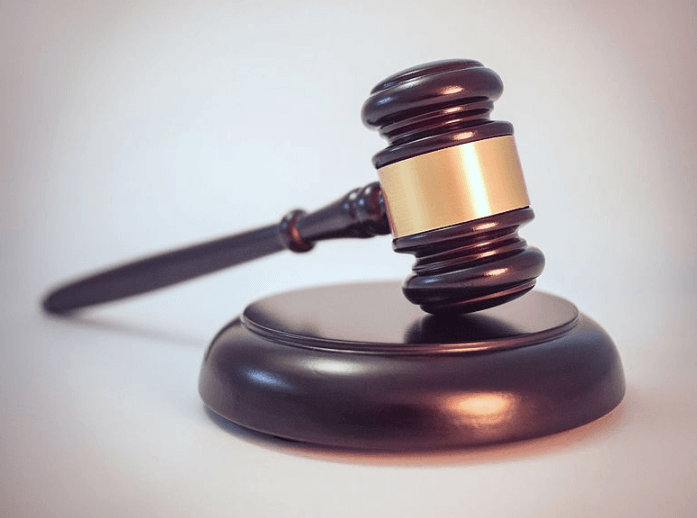What is a Deposition?
What is a Deposition?

I’m Ed Smith, personal injury attorney and founder of www.autoaccident.com, the most comprehensive resource for victims who have suffered injuries due to another party’s negligence. I take pride in educating the public, in general, and more importantly, educating those who have suffered injuries and need a reputable attorney who will fight to recover the maximum compensation they deserve under California law.
In this article:
- What is a Deposition, and How Does it Work?
- What Should I Wear to a Deposition?
- What Do I Need to Remember When Giving My Deposition?
- How Does an Attorney Prepare for a Deposition?
- What is the Discovery Process, and How Does it Relate to a Deposition?
- How Do Depositions Work in California?
- What is the Purpose of a Deposition in a Personal Injury Case?
- How Do I Find an Attorney Who Is Skilled at California Depositions?
To put it as simply as possible, a deposition is when the oral statement is taken under oath. Typically, an attorney asks questions during a deposition, and the deponent, or the person providing the deposition, answers the questions. A tape recorder or court reporter, and sometimes both, is used to record the testimony. In most cases, the deponent and the court reporter who types up the deposition will sign affidavits that certify that the transcript is accurate.
A deposition has two functions:
- To find out exactly what the witness knows
- To preserve the testimony of the witness
The crime scene can be captured in photographs, and evidence from a traffic accident can be gathered at the scene. This evidence can then be preserved by forensic specialists. Yet, the testimony of a witness can only be preserved in a deposition. Physical evidence rarely changes unless someone tampers with it, which is a topic for another day. However, a witness or other party could change their testimony many times if not properly deposed. That is why it is crucial to capture the deposition of the witness or party.
What Should I Wear to a Deposition?You want to be mindful that the deposition is typically the first time the opposing attorney will meet you. First impressions are important. You will want to make a good impression on the attorney and their client. Dress as if you were actually appearing before a judge or jury. It is wise to dress conservatively. No flashy fashion statements. Business casual is a good choice.
What Do I Need to Remember When Giving My Deposition?Your deposition, properly given by you, can help your attorney effectively handle your case, whether by way of settlement or trial. Depending on your truthfulness, appearance, and attitude, what you do at your deposition can either help or hurt you. Don’t worry. Your lawyer will likely meet with you in advance to go over these rules, as well as the facts of your case.
- DO relax.
- DO speak clearly–take your time.
- DO answer every question truthfully.
- DO stick to the facts as you know them.
- DO NOT give opinions or estimates of distance or time.
- DO NOT gesture an answer (i.e., nod your head). Answer audibly.
- DO NOT lose your temper.
- DO NOT answer a question that you don’t understand. Ask for an explanation.
Clients often worry about what they should say at deposition or how to answer questions. An attorney will sit down with you (often over lunch or dinner) and review all the important documents and medical records with you. Depositions are nothing to worry about. We help prepare you ahead of time. All you need to do is tell the truth about everything to the best of your ability.
What is the Discovery Process, and How Does it Relate to a Deposition?
In civil and criminal cases, both the plaintiffs and the defendants have the right to conduct a process that is called discovery. During the course of a lawsuit, our legal system relies on one basic principle: there should not be any surprises—even though many television shows and movies may portray the opposite. Of course, this is not always the way things work. However, since the late 1940s, the American federal court system has required each party of a lawsuit to provide complete disclosure of all documents, evidence, and relevant facts of the case to the opposite party before the trial to ensure that there are no surprises.
We have seen it numerous times on television and in movies – a surprise witness is kept in the dark, just in case one party seems to be losing toward the end of the trial. This type of legal strategy would be unfair and typically would not be fair to both parties involved in real life. By the time any trial commences, both parties involved in the case should be fully aware of who the witnesses are and what they will be testifying about if they are called to the stand.
The discovery of a legal matter is a formal investigation that seeks to discover more about the case. When parties are provided access to discovery (i.e., the facts and evidence of the case), they can better form their legal strategy and attempt to avoid any potential delays once the trial is underway. Sometimes, the facts and evidence revealed during the discovery process may help the two opposing parties decide to settle rather than going through the lengthy and often drawn-out trial process.
Discovery can include many different things. Commonly, subpoenas for documents relevant to the case are part of the discovery of a case. Written questions, otherwise known as interrogatories and depositions, are also included in the discovery.
How Do Depositions Work in California?Despite what most people may imagine, depositions are not taken in courtrooms. On the contrary, they typically are taken in an attorney’s office. The attorneys ask the deponent questions about the events and facts related to the case, while a court reporter sits in the office and records the question-and-answer session, word for word. If a deponent is ill and it seems that they may not be well enough to make it to the trial, have plans to be out of town, or for some other reason, will be unavailable while the trial is taking place, the deposition may be videotaped.
Depositions are not closed sessions, either. If the other party wants to attend the deposition, they are welcome to be present. The deponent can bring their lawyer with them, as well. While the attorney of the deponent is allowed to make objections during the deposition, the deponent is typically obligated to answer all of the questions that are posed during a deposition, regardless of objections, since there is not a judge present at the procedure.
Depositions can be quick and over within fifteen minutes or take an entire week, or even longer, depending on the case and the importance of the witness. Deposition definition is a serious procedure, and everything said at a deposition is considered extremely important. The question-and-answer session takes place while the deponent is under oath. And if the deponent provides false statements during the deposition, they could be punished, both civilly and criminally.
What is the Purpose of a Deposition in a Personal Injury Case?The circumstances and facts of a case will determine whether or not a deposition definition is necessary. Cases that involve only legal matters typically do not require depositions. However, cases that include evidence, witness testimony, and other factual issues may require a deposition or several depositions. Depositions help provide a more complete understanding of events and can play a vital role in many types of lawsuits.
How Do I Find an Attorney Who Is Skilled at California Depositions?When searching for an attorney, some things will tell you whether or not an attorney is right for you. Your case and your needs must be addressed. If you think that your case will require at least one deposition, it is important to find an attorney who knows crucial questions. Attorneys who have long histories of successful trial verdicts have most likely been involved in depositions.
Do not hesitate to ask a potential attorney if they are skilled in conducting depositions. Pay close attention to their reaction when you ask them. Follow your instincts. If it seems like the attorney is not skilled with deposition definition, you may want to move along to the next prospect. Ultimately, you want to find an attorney who makes you feel one hundred percent comfortable and confident.
If you are expected to provide a deposition as a witness in a case, spend time familiarizing yourself with what is expected of you. You may also want to contact a lawyer who can guide you and help protect your rights, especially if you are involved in a complex lawsuit that involves several parties.
